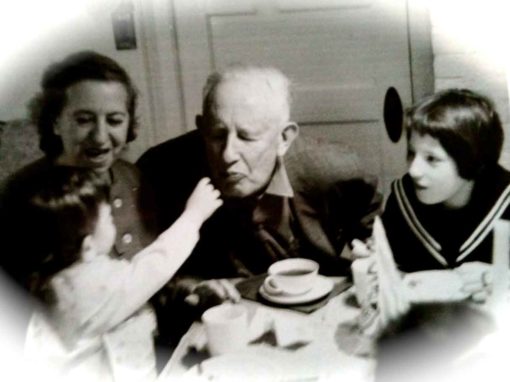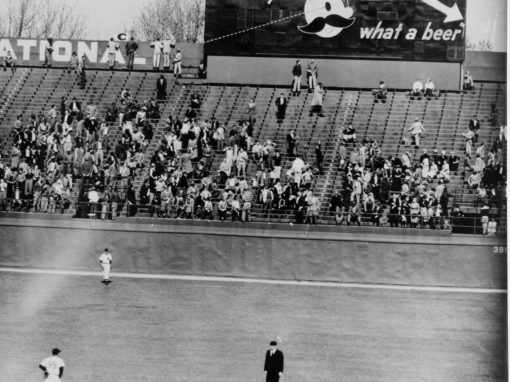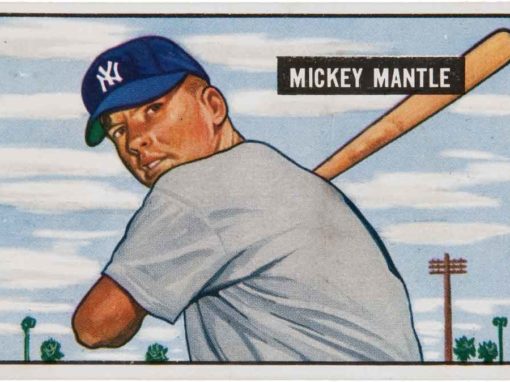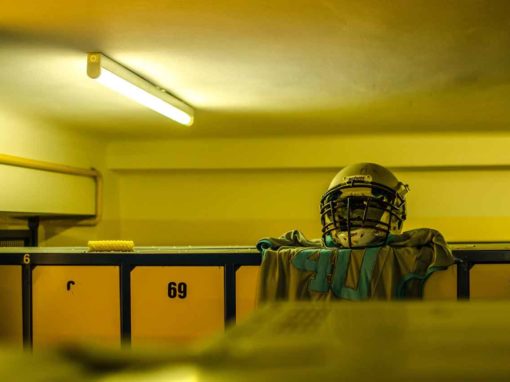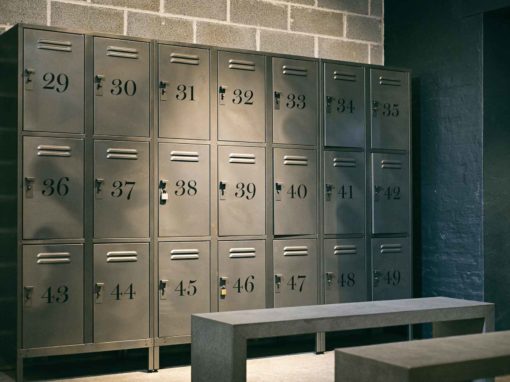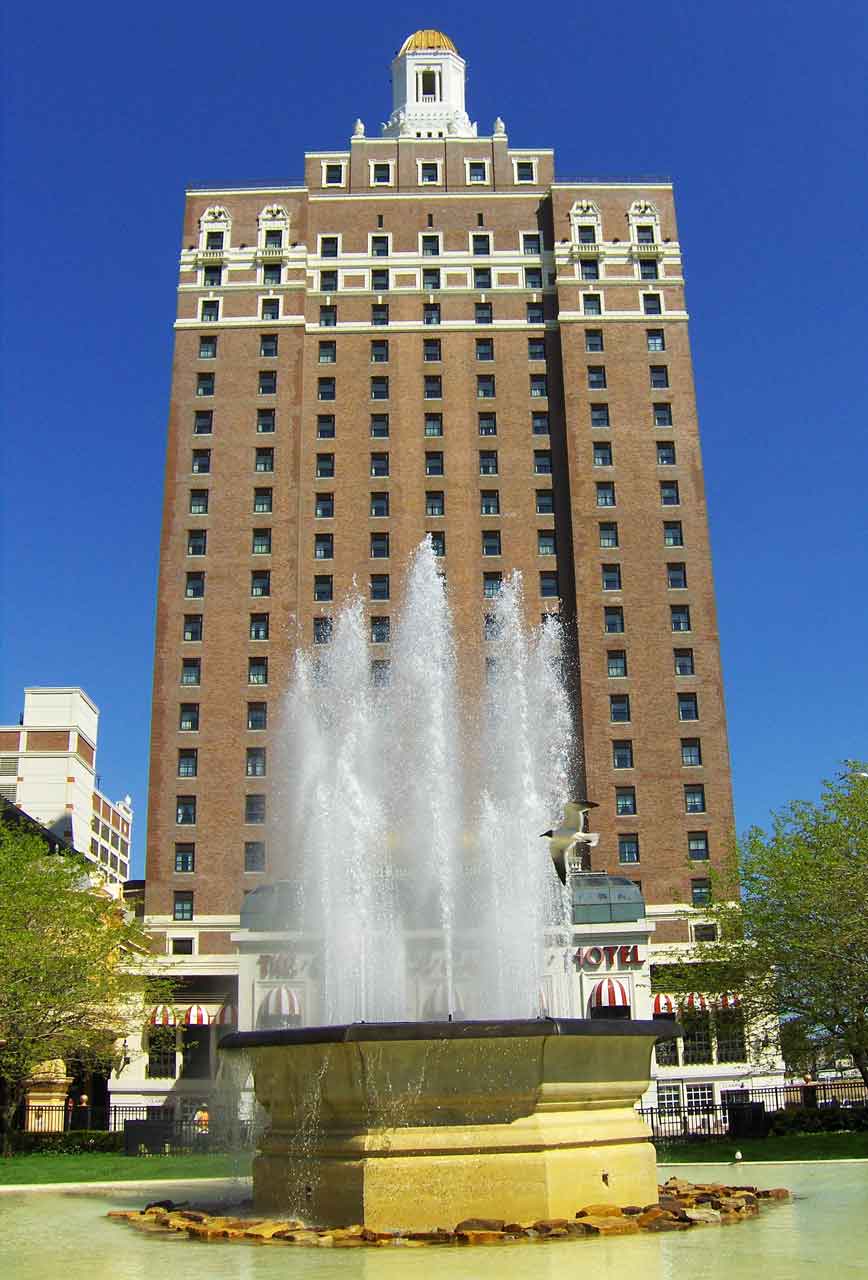The Man Baseball Forgot Plays the Hand He’s Dealt
A piece I wrote after meeting Mantle in Atlantic City
The Washington Post | May 8, 1983
ATLANTIC CITY | Mickey Mantle has these recurring dreams. He’s gliding down the runway with a vaulter’s pole in his hands. And it’s strange because he’s never pole-vaulted in his life. Stranger still, his knees don’t hurt and he’s running as fast as he can.
He soars over the bar, giddy. He is so high, he can barely see the people on the ground. “When I get to the top, it’s like I’m 50 stories high. I look down and there ain’t nothing,” he said.
Suddenly, he’s free falling. Faster, faster. Terrified. But he always wakes up before he returns to earth. Cold and sweating
Mickey Mantle awakens in Atlantic City, a place somewhere between decay and decadence. Downstairs in the Hi-Ho Casino, grim-looking women numbed by repetition line up behind slot machines, investing heavily in another kind of dream. They don’t bother taking off their coats. It only takes three minutes to lose $10 in quarters. Sirens blare, bells ring, for someone else.
Inside, it is always night, a place for people who can’t sleep and can’t quit trying to win. Mantle’s twin brothers are pit bosses in Las Vegas. His mother likes the slot machines so much they had to buy her a glove to protect her hand. But her son has been banned from baseball because of his affiliation with The Claridge Hotel and Casino.
Sometimes, he goes down there to sign autographs and say hello. But he won’t be photographed dealing craps. And, late at night, you’re more likely to find him in the hotel bar. “I don’t sleep anymore,” he said. “I wake up at 5:30 or 6. All those dreams.”
Every night. In one, he’s late for a game and he can hear the public address announcer saying, “Now batting, No. 7, Mickey Mantle.” He can see Whitey and Billy and Casey but he can’t get into the stadium because the gates are all locked. He doesn’t need anyone to interpret that for him.
What do you do when the dream ends and you wake up 14 years later with a family to feed and time to kill?
You make a living being Mickey Mantle.
The Claridge Hotel opened in Dec. 1929, which was one sort of gamble. The casino opened 52 years later. In February, Mickey Mantle was hired as director of sports promotions, to play golf with the high rollers and sign autographs for the low rollers. His job is to be nice, which is nice work if you can get it.
It is one of life’s great ironies that Mantle, who never quite felt at ease with the masses who adored him and sometimes couldn’t find time for them, now gets paid—$100,000 for one year—to do both. “I’m a lot nicer than I was,” he said. “I care more about what people think than I used to. When I was playing ball, I didn’t give a damn. Now I try to make people like me, maybe more than I should.”
It is 1 a.m. Four Alabama boys see Mantle at a table in the country western bar. The biggest and blondest of them, who looks a bit like the Mick, holds out a pen for an autograph. “I’m a 30-year-old man,” he says. “Would you mind? It’s the price of fame.”
Mantle, signing, says, “I get paid to do this.”
Sometimes, people come up to him on planes and tell him how he brushed them off. “I don’t feel bad,” he said. “I’ll give him an autograph now. I didn’t shove him out of the way because I hated him. I wanted to get to the ballpark. Or maybe I thought I gave him one before.
“I was shy, scared, aloof. That’s what they called it. I think the last 8 or 10 years with the Yankees I wasn’t scared or shy. I was more of a public relations man for myself.
“I’ll tell you what, though. Even though it’s my job to be nice to people. It’s not hard for me to do.”
Mantle almost advertises his excesses. At 51, he is living proof that you can take the boy out of the locker room but you can’t take the locker room out of the boy. The jokes are coarse, often unprintable.
But he can be vulgar one moment and eloquent the next. The contrast is startling, disconcerting. Mickey Mantle is still the greatest switch hitter baseball has ever known.
Who’s better, Mickey Mantle or Willie Mays?
Mantle shakes his head. He was expecting something really tough: “If you didn’t know either one of us and you opened the record book, what would it say? Damn Willie.”
Mays is a goodwill ambassador for Bally’s Park Place Casino Hotel, next door to the Claridge. Like Mantle, he can no longer be offically associated with major-league baseball because of the relationship with the casino. Their lives have long been intertwined but they haven’t run into each other here. They haven’t been in town at the same time.
Mays was blithe. He made baseball look so easy. Mantle was hurt. What should have been easy always looked so hard.
What do you do when the dream ends and you wake up 14 years later with a family to feed and time to kill?
It began in 1951. He was heir apparent to Joe DiMaggio and Babe Ruth. But he was striking out too much. “Casey had to send me down to the minors,” he said. “I went back to Kansas City. I got a hit my first time up and the next 22 I didn’t even hit the ball. I was really down. I called my Dad. I said, ‘Dad, I can’t play.’ He said, ‘You wait right there.’
“I think he’s coming up to give me a pep talk. He walks in the hotel room and starts throwing my stuff in a bag. I said, ‘What’s the matter?’ He said, ‘I thought I raised a man. You ain’t nothing but a damned coward. You come back and work with me in the (zinc) mines.’ He was crying. I was crying. I said, ‘Let me try again.’
Mutt Mantle, the best semipro ballplayer Commerce, Okla., ever knew, raised his son, and named his son (after Mickey Cochrane) to be a major leaguer. He spent $22 on a Marty Marion glove one Christmas when he was making $35 a week.
After his father left, Mantle hit .361 and rejoined the Yankees. They played the second game of the World Series that year at Yankee Stadium. “Willie Mays hit a popup,” Mantle said. “Joe DiMaggio was
playing center field and I was playing right. Casey had said Joe’s heel was hurting him—it was his last year—and try and catch everything I could. I was running as hard as I could. At that time, I could outrun anybody. Just as I was getting ready to put my glove up, I heard him say, ‘I got it.’
“Well, you don’t want to run into Joe DiMaggio. So I slammed on the brakes. In the outfield, they have these sprinkler heads and they have rubber things over the top of ’em so they can drain out. My back spike caught right on the edge of the rubber thing and it wouldn’t go with me. I was running so fast, my knee just went right out through the front of my leg.”
Mutt Mantle, who was dying of Hodgkin’s disease, saw his son get hurt that day. “The next morning it was so swollen, I couldn’t even walk so he took me to the hospital,” Mantle said. “He got out of the cab first. I couldn’t put any weight on my legs, so I put my arm around his shoulder. This guy was as big as me, maybe bigger. When I jumped out, I put all my weight on him and he crumpled over on the sidewalk. His whole back was eaten up. I didn’t know it but he hadn’t slept in a bed because of his back for like six months. No one had told me.
“So we went to the hospital and we watched the rest of the series together. That’s when they told me I’d better take him home and have him looked at because he’s a lot sicker than I think. When I got home, I took him up to Mayo’s Clinic in Rochester, Minn., and they cut him open and looked at him and said, ‘Hey, Mick, take him home, let him do what he wants, he’s not going to last much longer.’ ”
Mutt died the next spring at age 39. Mantle’s grandfather and two uncles died of the same disease before they reached 40. “I’m the first Mantle boy that ever made it past 40,” he said.
People said Mantle played every game like it was his last. “Maybe I thought about it, but it didn’t bug me,” he said. “I didn’t sit around and say, ‘I’m going to die.’ ”
Mantle’s third son, Billy, the one named for Billy Martin, has Hodgkin’s disease. He is 24. There are medical bills to pay. This is harder than his father. He turns away, flexing his thick, slugger’s hands, trying to control the feelings. A tear appears on his cheek. “I don’t want to talk about that, okay?” he said. “We’re hoping he gets okay. I think he will. We’re fighting it.”
A caravan of golf carts lined up by the first tee of the Linwood Country Club waits for Mickey Mantle. “I don’t walk,” he said. “I can’t walk.”
It is a wonderful day for golf, but the round is as much for the invited press as it is for the invited high-rollers, whose value to the casino entitles them to 18 holes with the Mick.
The golfers fill the first four carts; camera crews from two networks fill three more and newspaper reporters bring up the rear. Mantle hits his first ball wide right. It ricochets off a tree and into the beach grass. Mantle sets off in pursuit. He’s driving in circles looking for his ball; the television guys are driving in circles, looking to shoot him looking for his ball. “If you use this, it’s going to be the dullest TV show ever put on the air,” he says.
His second shot lands in a trap but he hits the green with his third. As he kicks the sand back into place, he says, “This’d be a good job for Billy. He could get a lot of practice out here.”
He’s doing exactly what is expected of him and doing it well. “Hey, did you hear Steinbrenner gave Yogi a new million dollar contract?” he asks. “A dollar a year for a million years.”
That reminds him of a Yogi-ism. One night, he says, Yogi and his wife were watching Steve McQueen in a late night movie “and Yogi said, ‘He musta made that before he died.’ ”
Someone asks what Whitey Ford is doing these days. ” ‘Bout like me,” he says, “Waitin’ to die.” He laughs. “Just teasing. I see him two or three times a year. We’re going to have a (baseball) card show at the hotel. We’ll have Whitey and Billy and Roger (Maris). Roger’s a good guy. Those were my three favorites.”
In the summer of 1961, he and Maris chased each other and Babe Ruth’s home run record across the country. Maris hit 61 and lost great gobs of hair. Mantle hit 54 and became a hero. “He beat Babe Ruth and he beat me, so everyone hated him,” Mantle said. “Everywhere I’d go, I’d get a standing ovation. All I had to do is walk out of the dugout.”
People send him the scrapbooks they have outgrown. He has 50 or 60 of them. Sometimes, early in the morning, when he can’t sleep, he goes into the playroom where he keeps all his trophies, including the three MVP awards, and reads them. “It’s like I’m reading about somebody else,” he said.
Many of those people are in their 40s and running corporations. They have dispensable income and might just be dispensing it at casinos. Bill Dougall, president of the Claridge and a member of his foursome, approached Mantle about the job last November. “We’re not trying to make money off him,” he said. “The main thing is national exposure.”
What better way to mitigate reservations about gambling than by bringing in the all-American boy? “What’s amazing is my name is as good as it is,” Mantle said. “When you think of Mickey Mantle, you think of Jack Armstrong. My dad named me Mickey Mantle, ‘cept it sounds like a made up name.”
Mantle has been here about six days a month since February. He’ll be back in June for the Mickey Mantle Invitational Golf Tournament. “Mickey only comes when he’s active and participating in an event,” Dougall said. “We would never ask him just to be a part of the furniture.”
Mantle says, “I would never do anything degrading to me or the hotel.”
He finishes the round with a 79, low score, and a sore knee.
For such work, he was forced to sever relations with baseball. “He was not banned,” a spokesman for Commissioner Bowie Kuhn said. “He can come back any time.”
“I think he (Kuhn) had to do it,” Mantle said. “He did it to Willie. I think he made his mistake when he did it to Willie. In the back of my mind, it bugs me me a little. It sounds worse than it is.”
He has been invited to the Yankees’ Old Timers Day but he’s not sure he wants to go. “I feel really kind of bad that no one took up for me except Billy,” he said. “It’s like, well, ‘He’s gone.’ ”
George Steinbrenner, owner of the Yankees, said, “I think it’s a crying shame that two great center fielders, two of the greatest in the history of the game, are both unable to have an active part in
baseball because of casinos. Gambling is part of the way of life in this country. The states have made it legal in casino form. By the same token, the commissioner has the right do what what he thinks is in the best interest of baseball.
“I feel for Mickey. I think it’s more important to him than he thinks. I tried to send word through Billy that I didn’t think it was a good idea. But a man has to feed a family, too.”
It wasn’t a difficult decision. “I knew I’d get banned,” Mantle said. “What was I getting banned from? I’ve been out 14 years. All I’m doing is going to spring training as a batting instructor, which I wasn’t. I was hanging around, same as now, signing autographs. I’m getting over $100,000 for being around. I like what I do.
“Why? I guess because there’s not that much responsibility to it.”
Most days, when he’s home, he gets up, checks the Yankees’ box score, stops by the office and heads for the golf course. He still does public relations work for the Reserve Life Insurance company, as he has for the last 10 years.
He never had any desire to coach. In 1978, he took his son, Mickey Mantle Jr., to spring training. “I didn’t know how to work the batting machine,” he said. “I put a ball in it. I had it turned up too high.
The sonovabitch was going 120 miles an hour. It hit him on the knee. Damn near broke his leg.
“If he would have had my dad for a dad, he would have made a major league baseball player.”
Mickey Mantle Jr. hit .198 in 70 games for the Alexandria Dukes that year. “My Dad always wanted one of us to play,” he said a couple of years ago. “I thought I’d try it for his sake.”
When Mickey Mantle Sr. was a boy, his father took him to Cardinal games in St. Louis, 300 miles away. “We’d go to the Fairgrounds Hotel by Sportsmen’s Park where Musial and Slaughter ate breakfast,” he said. “We’d just sit there and look at ’em. He never let me go over and get an autograph. Just to sit and look at ’em was unbelievable.”
When he got to the Yankees, years later, George Weiss, the general manager, took him aside and said, if anyone asks, “just act like Joe DiMaggio is your hero and the Yankees are your favorite team, okay?”
Sure, Mantle said.
He played 18 years, hit 18 home runs in 12 World Series, a record he still holds. He says he should have quit in 1965. But he always wanted to play longer than he could, longer than he did. Every time he is introduced at a banquet and the speaker says, “he had a lifetime .298 average,” he thinks, “you sonofabitch, quit saying it.”
You remember the painful tableaus—Mantle collapsed in the base line, Mantle catching his spike in the cyclone fence in Baltimore, Mantle playing in the 1961 world series with blood seeping through his uniform. “I didn’t hurt as bad as everybody thought I did,” he said. “I still ran down to first base faster than anyone.”
But the knee feels like jelly now, with a calcium marble floating where cartilage ought to be. He may have to have knee replacement surgery. “Baseball was easy for Willie,” Mantle said. “He loved it. You could see it in him. I did, too, when I felt good . . . I feel when I was good, I was better.”
In his playing days, he never had a hangover. This morning, he has a headache. A guy comes over to ask for an autograph. Mantle puts on his half-spectacles. “I never will forget: I saw you strike out five times one day in 1950 in Boston against Mel Parnell,” the guy says.
Mantle smiles and signs. After the guy leaves, he says, “There’s an example of being nice. I wasn’t even there in 1950.”
He orders a beer. “Have you ever heard that song, ‘Willie, Mickey and the Duke?’ That guy made some money.”
He begins to hum. ” ‘Talking baseball. Willie, Mickey and the Duke.’ ”
His voice trails off. He doesn’t know the words. “I know all the words to ‘I Love Mickey,’ ” he says. “Teresa Brewer wrote it.”
They recorded it together. ” ‘I love Mickey. Mickey who? The fellow with the celebrated swing.’ You know what’s on the other side? ‘Keep Your Cotton Pickin’ Patties Offa My Heart.'”
More Essays
